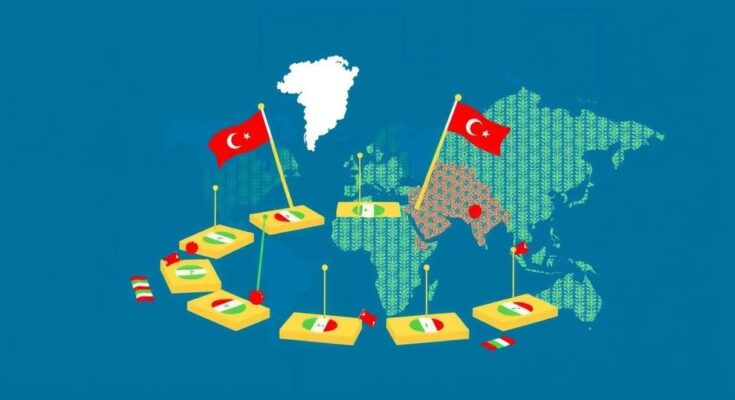At COP29 in Baku, climate talks are hampered by global conflicts, notably in Gaza and Ukraine. Activist Nisreen Elsaim shared her experience as a climate refugee from Sudan, stressing the talks’ significance for vulnerable nations. The summit aims to secure financial commitments from developed countries for climate aid, amidst growing concerns that wars detract attention from climate issues and hinder cooperation.
At the recent COP29 U.N. Climate Summit in Baku, Azerbaijan, climate negotiations have been notably complicated by ongoing global conflicts, including the wars in Gaza and Ukraine. Activist Nisreen Elsaim, sharing her personal experience as a climate refugee from Sudan, emphasized the urgency of these talks for vulnerable nations greatly impacted by climate change and armed conflict. The summit’s primary focus is to establish financial commitments from wealthier nations to assist developing countries in their climate adaptation efforts. However, leaders and commentators are increasingly voicing concerns that the presence of wars diverts critical attention and resources away from combating climate change, complicating diplomatic cooperation during these negotiations. World leaders underscored the exacerbating effects of climate change on poverty, food security, and geopolitical tensions. For example, President Shavkat Mirziyoyev of Uzbekistan noted that climate change poses a significant global threat while intensifying existing socioeconomic challenges. Likewise, the war in Gaza has had devastating repercussions on environmental progress, undermining infrastructural advancements in renewable energy and sanitation. Similarly, the conflict in Ukraine has drastically increased greenhouse gas emissions, highlighting the environmental costs of warfare. Activists at the summit, including those from Friends of the Earth, called for a redirection of military spending towards climate initiatives, citing a connection between systemic oppression and the frontline impacts of both climate change and conflict. Catherine Abreu of the International Climate Politics Hub echoed these sentiments, asserting that ceasing military conflicts could pave the way for increased climate action funding and adaptation efforts. Furthermore, Greg Puley of the United Nations’ Office for the Coordination of Humanitarian Affairs stressed the need for decisive action against climate-related disasters, even amidst geopolitical strife. The COP29 summit represents a pivotal moment for international climate diplomacy, where hopes for collaboration must persist despite the shadows cast by ongoing conflicts. The overall consensus among activists and leaders is that addressing the intertwined crises of climate change and war is essential for fostering a cooperative and effective global response.
The COP29 U.N. Climate Summit serves as a critical platform for negotiations regarding the global response to climate change, with a significant focus on financial commitments from developed nations to assist less affluent countries. As nations confront the repercussions of climate change, such as food insecurity and displacement, the complexity of negotiations is heightened by existing conflicts, particularly in regions like the Middle East and Eastern Europe. This summit is particularly significant for activists like Nisreen Elsaim, who highlight the urgent need for collaborative efforts in addressing both climate and conflict-related challenges, as well as the impacts of war on environmental sustainability.
In conclusion, the COP29 U.N. Climate Summit underscores the pressing need for cohesive international action in light of the challenges posed by both climate change and warfare. Despite the complexities introduced by ongoing global conflicts, there exists a collective call to redirect focus and resources towards climate adaptation and sustainable practices. The contributions and experiences of activists, coupled with the urgency expressed by world leaders, emphasize that the intersection of climate and conflict must be addressed to achieve meaningful progress in global climate initiatives.
Original Source: apnews.com




